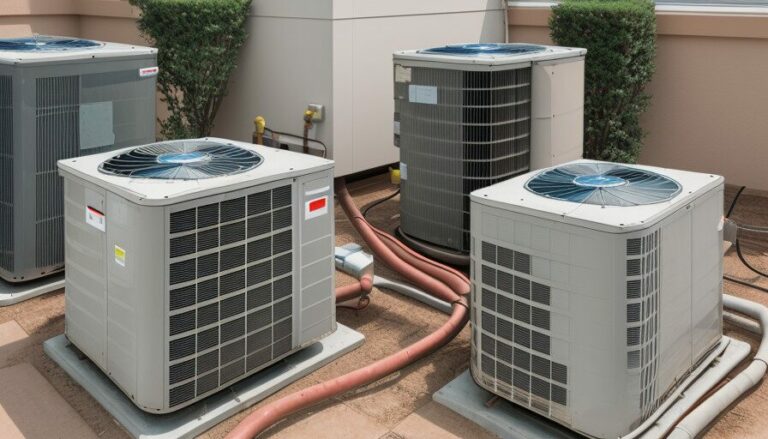HVAC installation for residential property owners includes more options beyond traditional air conditioning and heating units. As technology has advanced, homeowners control the temperature in their homes with central AC units, hydro-air systems, heat pumps, boilers, or another advanced system.
Qualified HVAC contractors offer installation services to meet each home’s needs. Here are some HVAC installation services that contractors offer:
1. Central Air Conditioning
A reliable method of temperature control, central air conditioning units offer homeowners efficiency and comfort. Central AC has three main methods: split-system air conditioning, heat pump, and packaged air conditioning. Each method has different components that contractors need to know to effectively install the systems.
A split-system AC uses indoor and outdoor units to cool down the home by moving hot air and humidity outside. It only provides a cooling effect, so pair it with a heating system such as a furnace. With a split-system AC, the HVAC installation service must install indoor and outdoor units, ductwork, and an additional furnace system. Heat pumps use an indoor unit and an outdoor unit to move hot air into the home or out of the home. This provides either a cooling or heating effect depending on how the thermostat is set. Because heat pumps can be either ducted or ductless, installation may be simpler compared to a split-system AC. Packaged air conditioners have one unit outside and extra ductwork inside the home, meaning installation focuses on connecting ductwork properly.
2. Central Heating
Furnaces, boilers, and heat pumps provide warm air to homes using natural fuel sources, water, steam, or electricity. Furnaces burn natural fuel, such as gas or oil, to generate hot air that is then spread through the house. A blower pushes air through ductwork to spread heat through the home via vents, while it also pushes cold air back toward the furnace to heat it again. HVAC professionals need to install ductwork, blowers, fans, and other heating components to have a furnace work efficiently. They also need to make sure the fuel source is set up properly for safe operation.
Similar to furnaces, boilers heat houses by burning a natural fuel source, like gas or oil, or by using electricity. Once the system heats the water to the set temperature, it moves to radiators that spread warm air through the house. HVAC contractors have to install radiators in each room and hook them up to pipework. Homeowners can use boilers for radiant floor systems, which require additional installation and construction.
3. Hydro-air Systems
Hydro-air systems combine the best parts of forced air systems and water components to heat homes. A boiler heats water by burning gas, oil, or propane. The system pumps hot water to an air handler, which then distributes the hot air through the home with radiators. The same boiler used for a hydro-air system can be used as a water heater for the rest of your home. An HVAC installer can add a cooling coil to give the system air conditioning capabilities as well.
Choosing an HVAC System
Whether you are having a new home built or changing your current HVAC system, an HVAC contractor has the knowledge to help you make the right decision for your home. Before installation, evaluate the climate, size, and layout of your home, and your desired energy efficiency. Because of their versatility, heat pumps work great in all kinds of climates. For homes with little space, ductless systems may be best. Large homes may function better using a central air conditioning system with a zoning feature that allows for more precise control.
Get HVAC Installation Services Today
Understanding the differences between each HVAC system and which one is best suited for different environments is something an HVAC installation service can help with. If you want to change your current HVAC system or you are building a new home, talk with an HVAC vendor to get professional advice and quality installation services.



